Find Help
More Items From Ergsy search
-
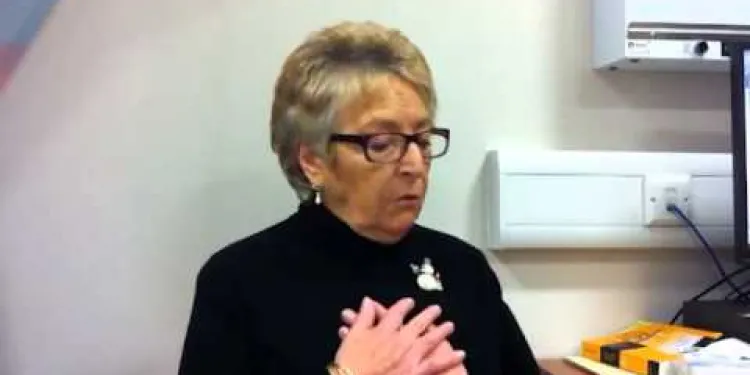
Neuroendocrine tumour patient video
Relevance: 100%
-
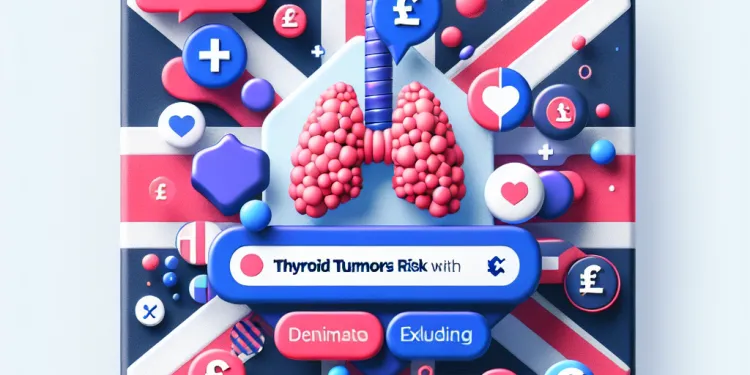
Is there a risk of thyroid tumors with Ozempic?
Relevance: 33%
-

What role do tumor markers play in testicular cancer?
Relevance: 32%
-

Emma's story: My brain tumour story
Relevance: 30%
-
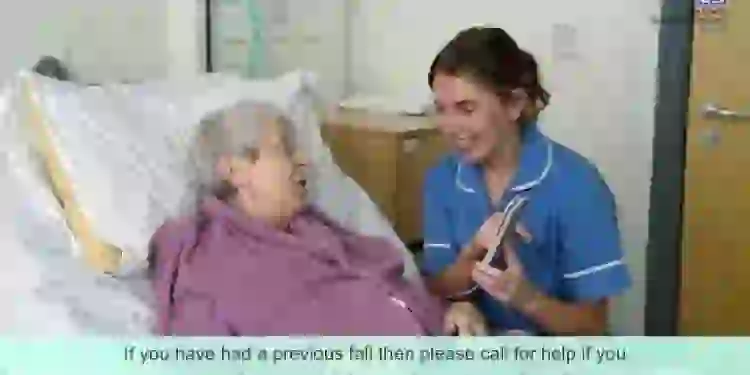
Falls Prevention video for patients attending hospital
Relevance: 28%
-
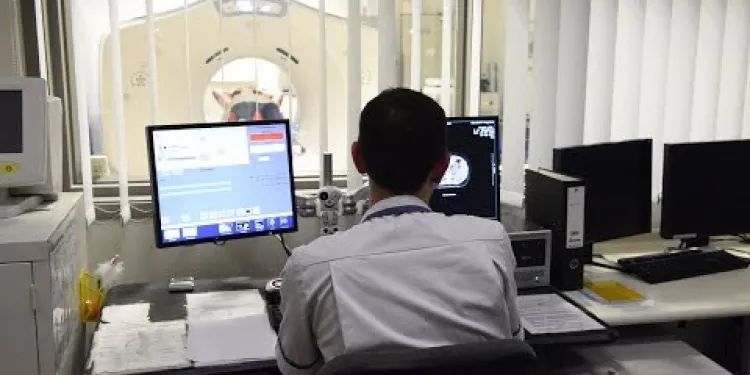
Having radiotherapy for breast cancer - 3 Videos
Relevance: 26%
-
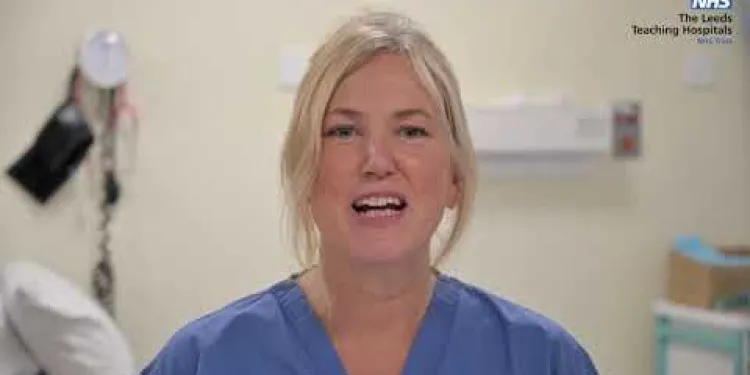
Patient Information Video - Leeds Stress Echocardiography Service
Relevance: 24%
-

Is the video quality of a Ring Doorbell Camera good?
Relevance: 24%
-

Patient video: What to expect when having a bone scan
Relevance: 23%
-

Pre chemotherapy Information Video
Relevance: 23%
-
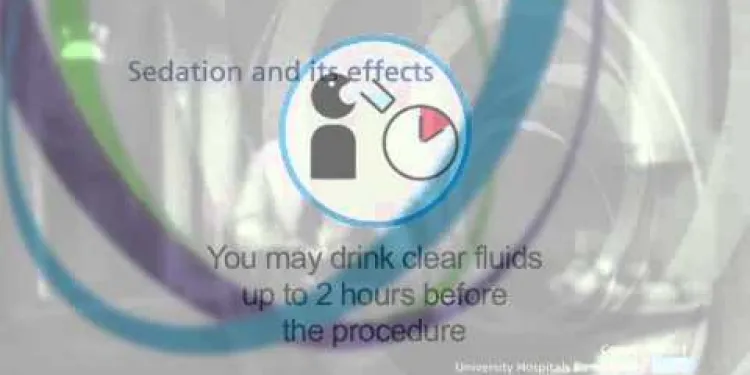
Endoscopy video preview
Relevance: 22%
-

Can technology aid in the care of Alzheimer's patients?
Relevance: 19%
-

What is Pancreatic Cancer?
Relevance: 19%
-

Breakthrough Cancer Treatment Shows Promise for NHS Patients
Relevance: 19%
-

Breakthrough in Cancer Treatment Offers Hope for Prostate Cancer Patients
Relevance: 18%
-

The Family Court without a Lawyer - Video 1 of 3
Relevance: 18%
-
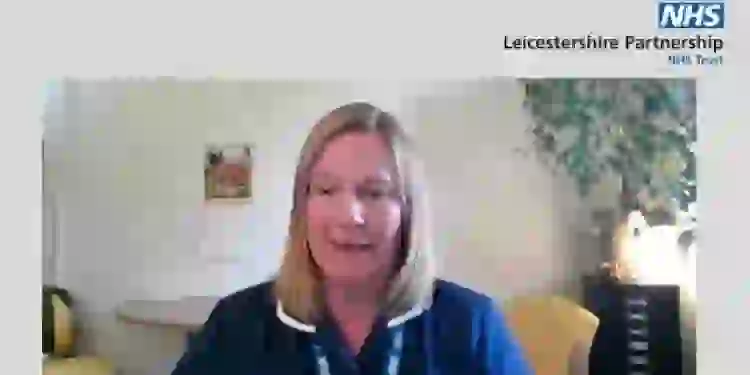
Needle phobia - Top tips video
Relevance: 18%
-
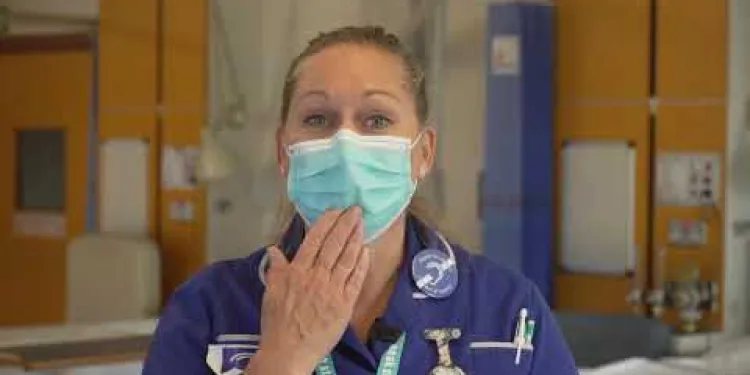
How to help deaf and hearing impaired patients and staff through Covid
Relevance: 17%
-

The Family Court without a Lawyer - Video 3 of 3
Relevance: 17%
-

Positioning for Breathless Patient
Relevance: 17%
-
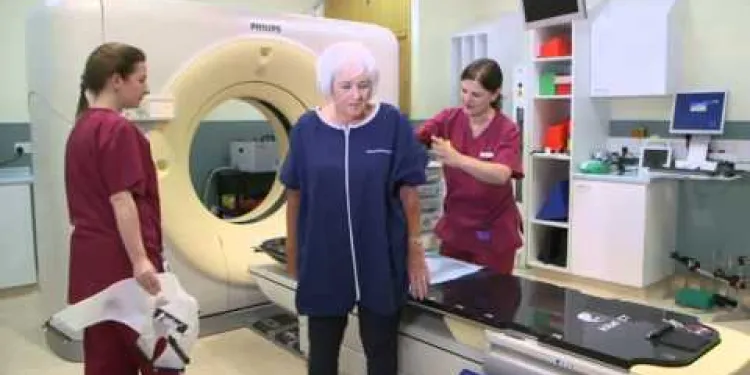
Radiotherapy to the Head and Neck: A Guide for patients and their carers
Relevance: 17%
-

The Family Court without a Lawyer - Video 2 of 3
Relevance: 16%
-
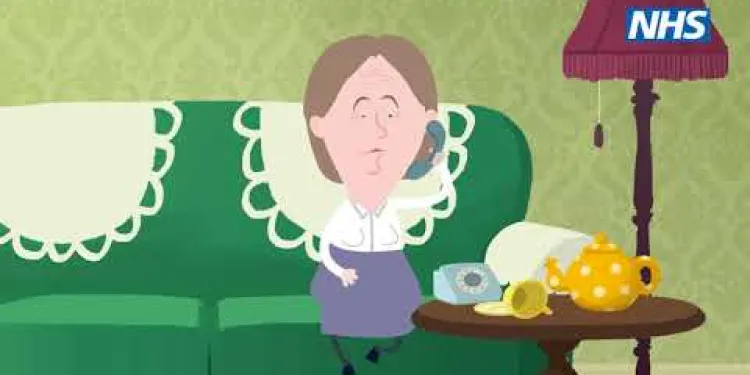
West Midlands LEHN Animated Video on Eye Health
Relevance: 16%
-

NHS STI (Sexually Transmitted Infections) Information Video
Relevance: 16%
-
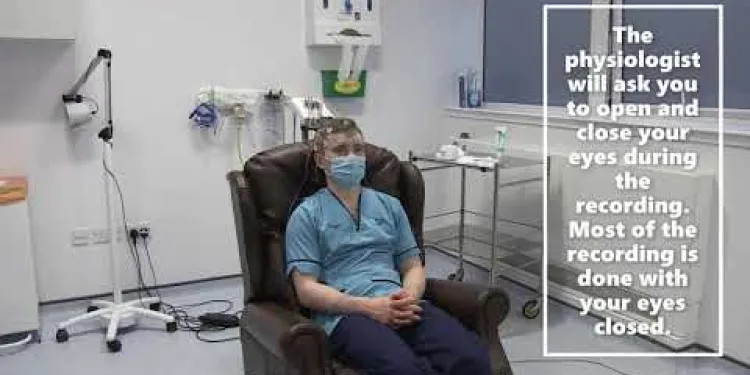
Neurophysiology EEG Patient Information
Relevance: 16%
-
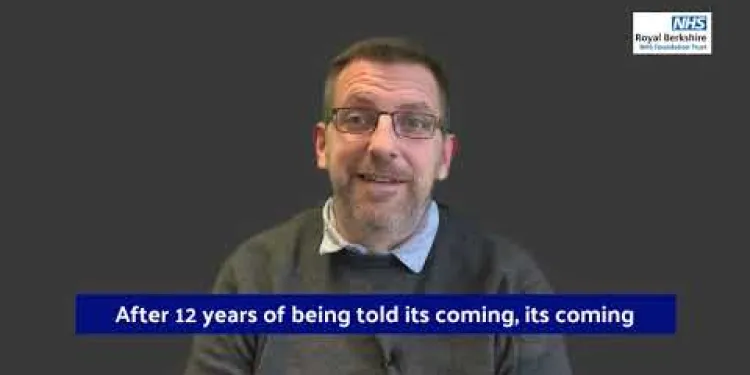
Peritoneal Dialysis - Information Video
Relevance: 16%
-

How can AI improve patient outcomes in lung cancer?
Relevance: 15%
-

How does brachytherapy differ from external beam radiation?
Relevance: 15%
-

Assessing the stroke patient
Relevance: 15%
-
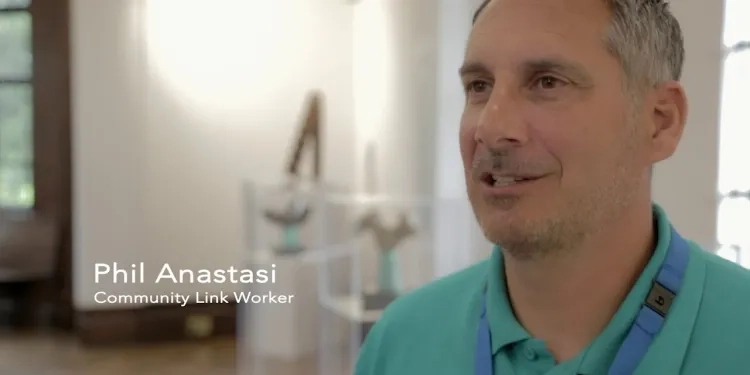
Introducing Social Prescribing - short video
Relevance: 15%
-
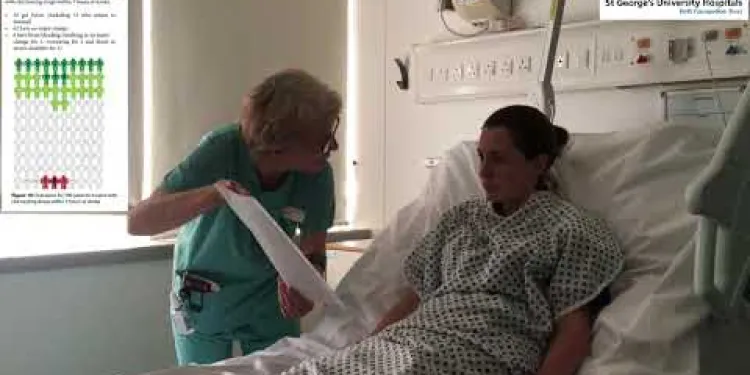
Gaining consent from stroke patients
Relevance: 15%
-

Are virtual wards suitable for elderly patients?
Relevance: 15%
-

Are there online support services for prostate cancer patients on the NHS?
Relevance: 15%
-
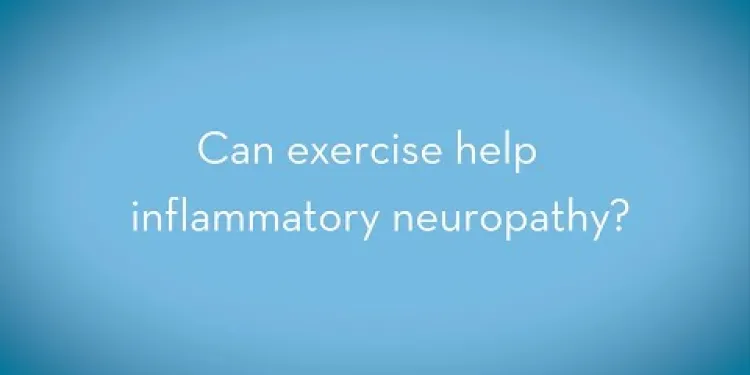
Exercise in patients with a neuropathy
Relevance: 15%
-

What is self-testing for eye patients?
Relevance: 14%
-
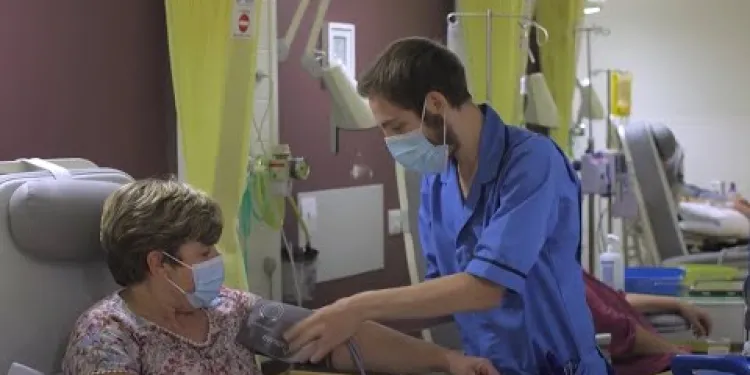
Chemotherapy - the patient journey
Relevance: 14%
-

How do virtual wards improve patient outcomes?
Relevance: 14%
-

Can Baxdrostat be used in patients with renal impairment?
Relevance: 14%
-

What legal rights do I have as a medical patient in the EU?
Relevance: 14%
-

NHS Utilizes AI to Prioritize High-Risk Patients on Waiting Lists
Relevance: 14%
Understanding Neuroendocrine Tumours (NETs): A Patient's Perspective
Introduction to Neuroendocrine Tumours
Neuroendocrine tumours (NETs) are a diverse group of malignancies originating from neuroendocrine cells. NETs can occur in various parts of the body, including the gastrointestinal tract, lungs, and pancreas. The incidence of NETs has been increasing in the United Kingdom, necessitating greater awareness and understanding.Symptoms and Diagnosis
Patients with neuroendocrine tumours often experience a variety of symptoms depending on the location and size of the tumour. Common symptoms may include abdominal pain, flushing, diarrhoea, and unexplained weight loss. Diagnosis usually involves a combination of imaging studies, biopsies, and specialized blood tests to detect hormone levels.Patient Journey and Treatment Options
The journey of a neuroendocrine tumour patient typically starts with symptom management and diagnosis confirmation. Treatment options vary based on the tumour's stage and location but may include surgery, targeted therapies, chemotherapy, and peptide receptor radionuclide therapy (PRRT). A multidisciplinary approach involving oncologists, endocrinologists, and surgeons is often critical for effective treatment.Quality of Life and Support
Living with a neuroendocrine tumour can significantly impact a patient's quality of life. Support groups and counselling services play a vital role in providing emotional assistance and practical advice for managing symptoms and treatment side effects. In the UK, organizations such as Neuroendocrine Cancer UK offer invaluable resources and support for patients and their families.Conclusion: Raising Awareness
Informative patient videos can be instrumental in raising awareness about neuroendocrine tumours among the general public and healthcare professionals. By sharing personal experiences, patients help demystify the condition, promote early detection, and encourage empathy and support from the wider community. Collaborative efforts are essential to improve outcomes and quality of life for those affected by NETs in the United Kingdom.Understanding Neuroendocrine Tumours (NETs): A Patient's Perspective
What Are Neuroendocrine Tumours?
Neuroendocrine tumours, or NETs, are a kind of cancer. They start in special cells called neuroendocrine cells. These tumours can be found in places like the stomach, lungs, and pancreas. More people in the UK are getting NETs, so it is important to know more about them.Signs and Finding Out
People with NETs can feel different things depending on where the tumour is in the body. Common signs include belly pain, turning red suddenly (flushing), loose poo (diarrhoea), and losing weight without trying. To find out if someone has a NET, doctors use pictures of the inside of the body, take small tissue samples (biopsies), and check blood for special hormone levels.The Path of a Patient and Ways to Help
For someone with a NET, the first steps are to manage how they feel and make sure of the diagnosis. How doctors help can change based on where the tumour is and how big it is. Help might include surgery to remove the tumour, special medicines, or treatments like chemotherapy and peptide receptor radionuclide therapy (PRRT). It’s important for different doctors, like cancer specialists and hormone specialists, to work together to give the best care.Living with NETs and Getting Help
Having a NET can change how someone feels about their life. It really helps to talk to support groups and counsellors. They can give advice and help people feel better. In the UK, groups like Neuroendocrine Cancer UK have lots of helpful information for people with NETs and their families.Ending: Telling Others
Watching videos made by patients can help everyone learn more about NETs. When patients share their stories, it helps others understand the condition better. This can lead to finding NETs earlier and supporting people with them more. Working together is key for helping people with NETs have a better life in the UK. Supportive tools: - Use pictures and videos to help understand better. - Join support groups for talking and sharing with others. - Ask doctors to explain things using simple words or drawings.Frequently Asked Questions
What is a neuroendocrine tumour (NET)?
A neuroendocrine tumour (NET) is a rare type of tumour that arises from neuroendocrine cells, which are found throughout the body. These cells can produce hormones, so NETs often release hormones into the bloodstream.
What are the common symptoms of NETs?
Symptoms vary depending on the tumour's location and the hormones it releases. Common symptoms include abdominal pain, flushing, diarrhoea, unexplained weight loss, and fatigue.
How are NETs diagnosed?
Diagnosis typically involves a combination of blood tests, imaging scans (such as CT or MRI), and biopsy procedures to confirm the presence and type of neuroendocrine tumour.
What treatment options are available for NETs?
Treatment options can include surgery, medication to control symptoms, targeted therapies, chemotherapy, and radiotherapy. The choice of treatment depends on the type, location, and spread of the tumour.
Is surgery always necessary for NETs?
No, surgery is not always necessary. It depends on factors such as the size, location, and spread of the tumour. Some patients may be managed with medication or other non-surgical treatments.
Can NETs be cured?
While some NETs can be cured, particularly if detected early and treated effectively, others may be managed as chronic conditions requiring ongoing treatment and follow-up.
Are NETs hereditary?
Most NETs are not hereditary, but some rare genetic syndromes, such as Multiple Endocrine Neoplasia type 1 (MEN1), can increase the risk of developing these tumours.
What specialists are involved in the care of NET patients?
Patients with NETs are usually managed by a multidisciplinary team including oncologists, endocrinologists, surgeons, radiologists, and specialised nurses.
What lifestyle changes can help manage NET symptoms?
Lifestyle changes that may help manage symptoms include eating a balanced diet, avoiding foods that trigger symptoms, staying hydrated, and maintaining a healthy weight. Regular follow-up with healthcare providers is also important.
How common are NETs in the UK?
NETs are considered rare, but their incidence is increasing. Approximately 5,000 people are diagnosed with NETs each year in the UK.
What is the prognosis for someone with a NET?
The prognosis varies widely depending on factors such as the type and stage of the tumour, the patient's overall health, and response to treatment. Early detection and treatment often lead to a better prognosis.
Can NET patients participate in clinical trials?
Yes, NET patients may have the opportunity to participate in clinical trials, which can provide access to new treatments and contribute to medical research. Patients should discuss trial options with their healthcare team.
Are there support groups for NET patients in the UK?
Yes, there are several support groups and organisations in the UK such as the NET Patient Foundation that provide resources, information, and community support for individuals affected by NETs.
What is the role of hormone therapy in treating NETs?
Hormone therapy can help manage symptoms by controlling the excessive production of hormones by the tumour. This type of treatment is often used in combination with other therapies.
How can friends and family support someone with a NET?
Support can include being there for emotional support, helping with day-to-day tasks, attending medical appointments, and encouraging adherence to treatment plans. Understanding the condition and potential symptoms can also be beneficial.
What is a neuroendocrine tumour (NET)?
A neuroendocrine tumour (NET) is a lump that grows in the body. It starts from special cells called neuroendocrine cells. These cells help make hormones. Hormones are like little messengers that tell your body what to do.
Sometimes, these cells can grow too much and form a lump. This lump is called a tumour. Not all tumours are dangerous, but some can make you sick.
If you have trouble understanding big words, you can use pictures or ask someone to help explain. A doctor or nurse can also help you learn more about it.
A neuroendocrine tumour (NET) is a very rare kind of lump that can grow in the body. It comes from special cells called neuroendocrine cells. These cells are all over our bodies.
These cells can make hormones. Hormones are like little messengers that travel in the blood and tell different parts of the body what to do. NETs can sometimes put a lot of these hormones into the blood.
If reading is hard, you can ask someone to read with you or use tools like audiobooks. It can also help to look at pictures or videos about the topic.
What signs should you look for with NETs?
Let's talk about the signs of NETs. NETs are a type of illness called Neuroendocrine Tumors. Here are some signs to watch out for:
- Feeling tired a lot
- Pain in the stomach area
- Getting sick easily
- Skin feeling hot and red, like a rash
- Having a fast heartbeat
If you notice these signs, it might be good to tell an adult or a doctor.
Some tools can help you understand this better:
- Pictures: Looking at pictures can help you learn about these signs.
- Videos: Watching a video can also make it easier to understand.
- Talk to someone: Ask someone you trust to explain it to you.
Different symptoms happen based on where the tumour is and the hormones it makes. Common signs include tummy pain, feeling hot in the face, runny poo, losing weight without knowing why, and feeling very tired.
If you have trouble reading, try using an audiobook or a reading app that reads the text out loud.? You can also ask someone you trust to help you understand.
How do doctors find out if someone has NETs?
Doctors use special tests to find out if a person has NETs. These tests can include:
- Blood tests - Doctors take a little bit of blood to check for signs of NETs.
- Scans - Doctors use a machine to take pictures inside the body, like an X-ray or MRI.
- Biopsy - Doctors might take a small piece of tissue to look at it closely.
If you are unsure or have questions, you can ask your doctor to explain. You can also bring a friend or family member to help you understand.
To find out if you have a neuroendocrine tumour, doctors do some tests. They might take a little bit of your blood for testing. They can also use special cameras (like CT or MRI) to take pictures inside your body. Sometimes, doctors need to take a tiny piece of the tumour. This is called a biopsy.
If you find reading hard, you can ask someone for help. You can also use a tool to read the words out loud for you. Pictures or videos about the tests might help you understand better too.
What treatments can help people with NETs?
NETs, or neuroendocrine tumors, are a type of cancer. There are different treatments to help people with NETs feel better and get well. Here are some options:
- Surgery: Doctors can do an operation to take out the tumor.
- Medicine: There are medicines that can help stop the tumor from growing.
- Radiation: This uses special light to kill cancer cells.
- Chemotherapy: This treatment uses strong drugs to fight cancer.
- Support: It is important to talk about feelings and get help from family and friends. It can also be helpful to join a support group where you can meet others who have NETs.
Remember, doctors are there to help and can explain what is best for each person.
Ways to help you get better can include an operation, taking medicine to help with the symptoms, special treatments that aim at the illness, strong medicine to kill cancer cells, and using X-rays to treat the cancer. Your doctor will choose the best way to help you based on what kind of illness you have, where it is, and if it has spread.
Do people always need surgery for NETs?
No, you don't always need surgery. It depends on things like how big the lump is, where it is, and if it has spread. Some people can use medicine or other treatments instead of surgery.
Can NETs be made to go away?
Some NETs can be fixed, especially if doctors find them early and treat them well. Other NETs might need regular care and visits to the doctor to keep them under control.
Can NETs run in families?
Most NETs do not run in families, but some rare genetic problems, like Multiple Endocrine Neoplasia type 1 (MEN1), can make it more likely for these tumours to happen.
Who helps take care of people with NET?
People with NETs are usually cared for by a team of different doctors and nurses. This team includes cancer doctors, hormone doctors, surgeons, X-ray specialists, and nurses who are experts in helping with NETs.
What can you do to help feel better if you have NET?
Here are some simple things you can do to feel better:
- Eat healthy foods. Try to eat fruits, vegetables, and whole grains. Avoid too much sugar and fat.
- Exercise regularly. A little bit of activity, like walking, can help.
- Get enough sleep. Try to sleep about 8 hours each night.
- Try to relax and reduce stress. You can try deep breathing, listening to music, or talking to a friend.
You can use tools like apps to remind you to eat well and sleep on time. Asking someone you trust for help can also be very useful.
Here are some things you can do to feel better:
1. Eat different kinds of healthy foods.
2. Stay away from foods that make you feel bad.
3. Drink plenty of water.
4. Try to stay at a healthy weight.
It is important to see your doctor or nurse often to check how you are doing.
How many people get NETs in the UK?
NETs are not very common in the UK. Not many people get them.
If you need help understanding, you can:
- Ask someone to read with you.
- Use a dictionary to look up hard words.
- Visit websites that explain things in simple words.
NETs are not very common, but more people are getting them now. Around 5,000 people find out they have NETs in the UK every year.
What will happen to someone with a NET?
A NET is a short word for a Neuroendocrine Tumor. This is a type of lump or growth in the body. When doctors talk about prognosis, they mean what might happen in the future.
Different people might have different experiences with a NET. Some people might get better quickly, and others might take longer. The doctor can help tell what is likely to happen and make a plan.
It is important to talk to doctors and nurses. They can explain things clearly and help make a plan that is best for the person.
Using pictures and simple words can be helpful. Asking a trusted person to come to doctor visits can also help understand better.
The outlook depends on many things. These include the type of tumor, how advanced it is, the patient's health, and how they respond to treatment. Finding and treating it early usually means a better chance of getting well.
If reading is hard, try using tools that read the text out loud or highlight words as you read. You can also ask someone for help if you're stuck.
Can people with NET join clinical trials?
Yes, if you have NET (which stands for Neuroendocrine Tumors), you might be able to join a clinical trial. This can help you try new treatments and help doctors learn more about NET. It's important to talk about trial options with your doctors and nurses. Remember to use tools like voice-to-text or audiobooks if reading is challenging.
Are there support groups for NET patients in the UK?
Yes, there are groups that can help people with NETs in the UK.
What is NET?
NET stands for Neuroendocrine Tumour. It is a type of cancer.
How can these groups help?
They help by giving information and support. You can meet other people with NETs.
How to find a group:
1. Ask your doctor or nurse.
2. Look online for NET support in the UK.
3. Call a cancer helpline for advice.
Helpful tips:
- Bring a friend or family member with you.
- Write down your questions before you go.
- Take notes during meetings.
Yes, there are groups in the UK that help people with NETs. One group is the NET Patient Foundation. They have information, resources, and a community to support people with NETs.
How does hormone therapy help with NETs?
Hormone therapy is a treatment that helps people who have NETs (neuroendocrine tumors). This therapy can help slow down the growth of NETs.
NETs sometimes make too many hormones. Hormone therapy can help stop this. By using special medicine, it can make people feel better. This is because the medicine helps keep hormones at the right level.
If you have questions or need help, talking to your doctor is a good idea. They can explain how this therapy works and if it is right for you.
Remember, you can also ask a family member or friend to help you understand more. Drawing pictures or using videos can also be useful tools to understand how hormone therapy works.
Hormone treatment helps with problems by stopping the tumour from making too many hormones. This treatment often works best when used with other treatments.
How can friends and family help someone with a NET?
It's good to have people to help when you have a NET.
Here are some ways friends and family can help:
- Listen when they need to talk. It shows you care.
- Go with them to doctor visits. It's good to have someone there.
- Help with daily things like cooking or shopping if they need it.
- Learn about NETs so you understand what's happening.
- Offer to do fun things together. It can help them feel better.
- Ask what they need. Everyone is different.
Some tools that can help:
- Write things down in a notebook. It's easy to forget things.
- Use a calendar to keep track of appointments.
- Find support groups. Talking to others can help.
Remember, just being there means a lot.
You can help someone by being there if they feel sad, helping with everyday jobs, going with them to the doctor, and cheering them on to follow their treatment plan. Learning about their illness and what might happen can also be helpful.
Useful Links
This website offers general information and is not a substitute for professional advice.
Always seek guidance from qualified professionals.
If you have any medical concerns or need urgent help, contact a healthcare professional or emergency services immediately.
Some of this content was generated with AI assistance. We’ve done our best to keep it accurate, helpful, and human-friendly.
- Ergsy carfully checks the information in the videos we provide here.
- Videos shown by Youtube after a video has completed, have NOT been reviewed by ERGSY.
- To view, click the arrow in centre of video.
- Most of the videos you find here will have subtitles and/or closed captions available.
- You may need to turn these on, and choose your preferred language.
- Go to the video you'd like to watch.
- If closed captions (CC) are available, settings will be visible on the bottom right of the video player.
- To turn on Captions, click settings .
- To turn off Captions, click settings again.
More Items From Ergsy search
-

Neuroendocrine tumour patient video
Relevance: 100%
-

Is there a risk of thyroid tumors with Ozempic?
Relevance: 33%
-

What role do tumor markers play in testicular cancer?
Relevance: 32%
-

Emma's story: My brain tumour story
Relevance: 30%
-

Falls Prevention video for patients attending hospital
Relevance: 28%
-

Having radiotherapy for breast cancer - 3 Videos
Relevance: 26%
-

Patient Information Video - Leeds Stress Echocardiography Service
Relevance: 24%
-

Is the video quality of a Ring Doorbell Camera good?
Relevance: 24%
-

Patient video: What to expect when having a bone scan
Relevance: 23%
-

Pre chemotherapy Information Video
Relevance: 23%
-

Endoscopy video preview
Relevance: 22%
-

Can technology aid in the care of Alzheimer's patients?
Relevance: 19%
-

What is Pancreatic Cancer?
Relevance: 19%
-

Breakthrough Cancer Treatment Shows Promise for NHS Patients
Relevance: 19%
-

Breakthrough in Cancer Treatment Offers Hope for Prostate Cancer Patients
Relevance: 18%
-

The Family Court without a Lawyer - Video 1 of 3
Relevance: 18%
-

Needle phobia - Top tips video
Relevance: 18%
-

How to help deaf and hearing impaired patients and staff through Covid
Relevance: 17%
-

The Family Court without a Lawyer - Video 3 of 3
Relevance: 17%
-

Positioning for Breathless Patient
Relevance: 17%
-

Radiotherapy to the Head and Neck: A Guide for patients and their carers
Relevance: 17%
-

The Family Court without a Lawyer - Video 2 of 3
Relevance: 16%
-

West Midlands LEHN Animated Video on Eye Health
Relevance: 16%
-

NHS STI (Sexually Transmitted Infections) Information Video
Relevance: 16%
-

Neurophysiology EEG Patient Information
Relevance: 16%
-

Peritoneal Dialysis - Information Video
Relevance: 16%
-

How can AI improve patient outcomes in lung cancer?
Relevance: 15%
-

How does brachytherapy differ from external beam radiation?
Relevance: 15%
-

Assessing the stroke patient
Relevance: 15%
-

Introducing Social Prescribing - short video
Relevance: 15%
-

Gaining consent from stroke patients
Relevance: 15%
-

Are virtual wards suitable for elderly patients?
Relevance: 15%
-

Are there online support services for prostate cancer patients on the NHS?
Relevance: 15%
-

Exercise in patients with a neuropathy
Relevance: 15%
-

What is self-testing for eye patients?
Relevance: 14%
-

Chemotherapy - the patient journey
Relevance: 14%
-

How do virtual wards improve patient outcomes?
Relevance: 14%
-

Can Baxdrostat be used in patients with renal impairment?
Relevance: 14%
-

What legal rights do I have as a medical patient in the EU?
Relevance: 14%
-

NHS Utilizes AI to Prioritize High-Risk Patients on Waiting Lists
Relevance: 14%


